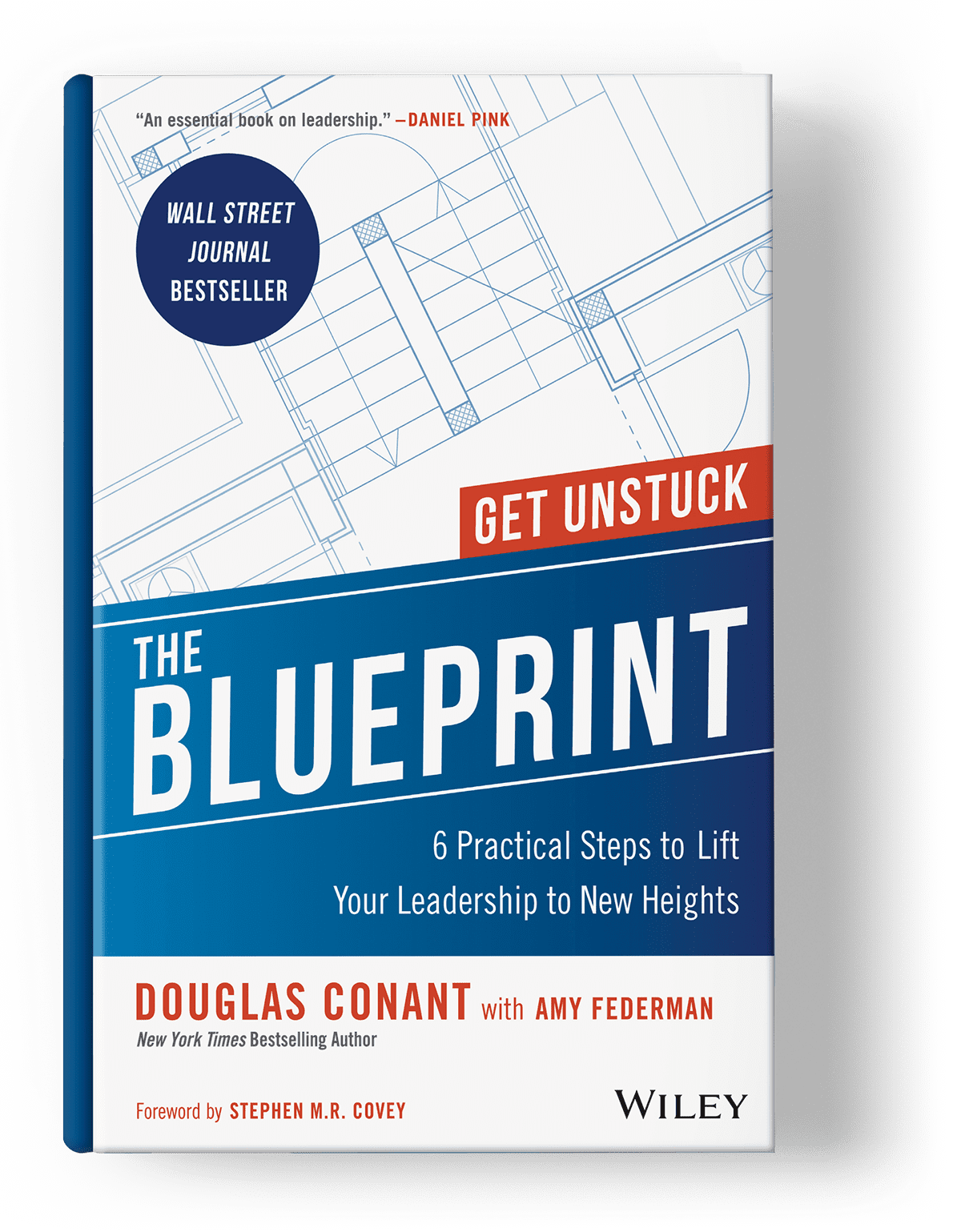Leadership is the art and science of influencing others. And it’s tough. More now than ever. In an age of unprecedented complexity, dysfunction, mistrust, and innovation, it can be hard to keep your head above water, let alone inspire entire groups of people to do extraordinary things day after day. Even under normal circumstances, it’s challenging to produce optimal results while also managing the perpetual barrage of emails, phone calls, reports, personal issues, and home-life demands. Throw adversity into the mix and, suddenly, even maintaining the bare minimum can be harrowing. But that’s the job. You’re required to deliver high performance no matter what – on the good days and the bad — when things are running smoothly and when you’re in the midst of a five-alarm crisis. Luckily, no matter what tumult is thrown into your path by forces outside your control, there is always one thing you can absolutely control: your response to the situation. You always have a choice.
Stop and think about how you’re engaging with the problem.
Acknowledging you have a choice is step one in dealing with tough situations (you can read more about this in a separate post here). Making the right, most helpful choice is step two. To assist you with step two, we’re kicking off a three-part series that addresses common counter-productive mindsets that can easily descend upon leaders in the midst of challenging situations – and we’re exploring simple, alternative approaches that you can consciously choose instead. Sometimes, in the depths of a crisis, it can be hard to look beyond the problems in front of you, see things clearly, and consider your path forward with clarity and discipline. That’s why it’s useful to remember to stop and think about how you’re choosing to engage with the problem. The first, most important, better choice you can make is:
Instead of choosing isolation and self-pity, ask for help. Instead of retreating inward, look outward.
Often, when you’re the leader, it can feel like the whole world rests on your shoulders. Lots of different stakeholders are depending on you. That feeling can easily be compounded and amplified when things go awry or become particularly stressful. Maybe a VIP client is threatening to take their business elsewhere, or your team didn’t make its numbers, or you haven’t been able to attract the right talent for an essential position and the vacancy is affecting your entire workgroup. And maybe there’s a time pressure too. Why haven’t you been able to solve the issue quickly? It’s all building up. And it’s all up to you.
Instead of retreating inward and causing yourself more stress by letting counter-productive thoughts creep into your headspace about how you’ve failed, or how the task is proving impossible because, for pete’s sake, you’re only one person and how does anybody expect you to get anything done in these circumstances – choose to stop this self-pity-party dead in its tracks and just ask for help. It’s so simple. But often leaders are reticent to ask for help because they’re fearful it diminishes their ability to problem-solve or will somehow make them appear weak or unequipped. This is false thinking. Remember, the people depending on you likely care less about how you get the job done and more that it’s handled with integrity and executed well.
The ability to build a network is a leadership skill.
The best leaders understand this and learn to smartly leverage their network to solve hard problems. In fact, the ability to build a diverse network of people with different areas of expertise — and to be able to deftly call upon that community of people to solve hairy conundrums — is a leadership skill unto itself and it can make you indispensable. It helps you make informed decisions faster (a key trait of successful CEOs). And, you may find, as you prove your capability to identify the best helpers or experts in tough situations, people come to you when they’re wrestling with their own crises – which means you become known as a problem-solver, a very good thing for career and leadership success. On top of it all, as you flex your problem-solving skills, you’ll have more and more opportunities to pay forward the help you’ve received from others. Clearly, the benefits to this approach are plentiful.
As you work on developing your ability to strategically ask for help, and look outward in times of trouble, here are four things to consider:
1. Be creative with what you consider your network. Sometimes the right person isn’t a professional connection; sometimes it’s a family member or a friend who is sitting on the answer you never even considered. Or it’s an old coach or mentor. Or it’s an author who wrote “the book” on the topic you’re struggling with. Or it’s somebody you know from twitter. Or it’s a YouTube star, local politician, or even your taxi driver. Expanding your definition of your network opens up countless new ways to seek help, broaden your perspective, and solve an ever widening array of problems. Look for help in new places and you will get out of your tight spot faster and more effectively.
Look for help in new places.
2. In a pinch, try a mental consult. If you’ve racked your brain and there’s truly nobody who can feasibly help you – or if there is a break-neck time constraint and you simply won’t be able to take the necessary time to consult somebody with a conversation — you can also do a quick mental consult with the people who have inspired you the most in your leadership journey. This is a practice we call consulting your Entourage of Excellence. It involves quickly asking yourself what the people in your network would do in similar circumstances and applying that brainstorm to your current situation; this practice can be enormously helpful in tough situations (and you can learn more about developing your entourage and making the most of this mental tool in a separate post here).
3. Don’t just ask. Offer. One of the most effective ways to build a network is to make it a habit to offer your help to others. Build it into your leadership behavior. Then, when you inevitably need help down the line, you’ve already built up a reservoir of good will through your own good deeds. It’s also smart leadership strategy. By beginning more interactions with, “how can I help?” you demonstrate to others not only that you’re in the fight with them, and that you have their back (which builds trust) – but, as the leader, you demonstrate to your team that offers of (and requests for) help are OK, productive, and actually encouraged. The more you empower others to ask for help, the more quickly and effectively your whole team can collaboratively find solutions to the hardest problems you’ll face. And everyone does better.
There aren’t actually that many “new” problems under the sun.
4. Always remember, you’re not alone. The phenomenon of feeling “lonely at the top” is so widely known, it’s become cliché. But it doesn’t have to be that way. You can choose to view it differently. Truthfully, as unique and specific as the struggles of your particular situation may feel, there aren’t actually that many “new” problems under the sun. Chances are, someone you know has been through something similar and has some insight that can help. But you won’t know unless you ask.
The next time you’re facing an uphill battle, and you find yourself inhabiting a victim’s mentality of “poor me”, “this is impossible”, “everyone’s counting on me and I’m hopelessly stuck” etc. – STOP. Take a deep breath. Consider the richness of the options and people available to assist you. Choose to try something else and creatively ask for help. You will be heartened and surprised by the willingness of others to dig in and work towards a solution with you. You’ll probably learn something new in the process. And, you’ll be strengthening your leadership capacity exponentially for the next tough situation.
Was there a time where asking for help made all the difference to a problem you were facing? Share in the comments or tweet us at @DougConant. If you found this useful, explore the second post in our “better choices” series.






0 Comments